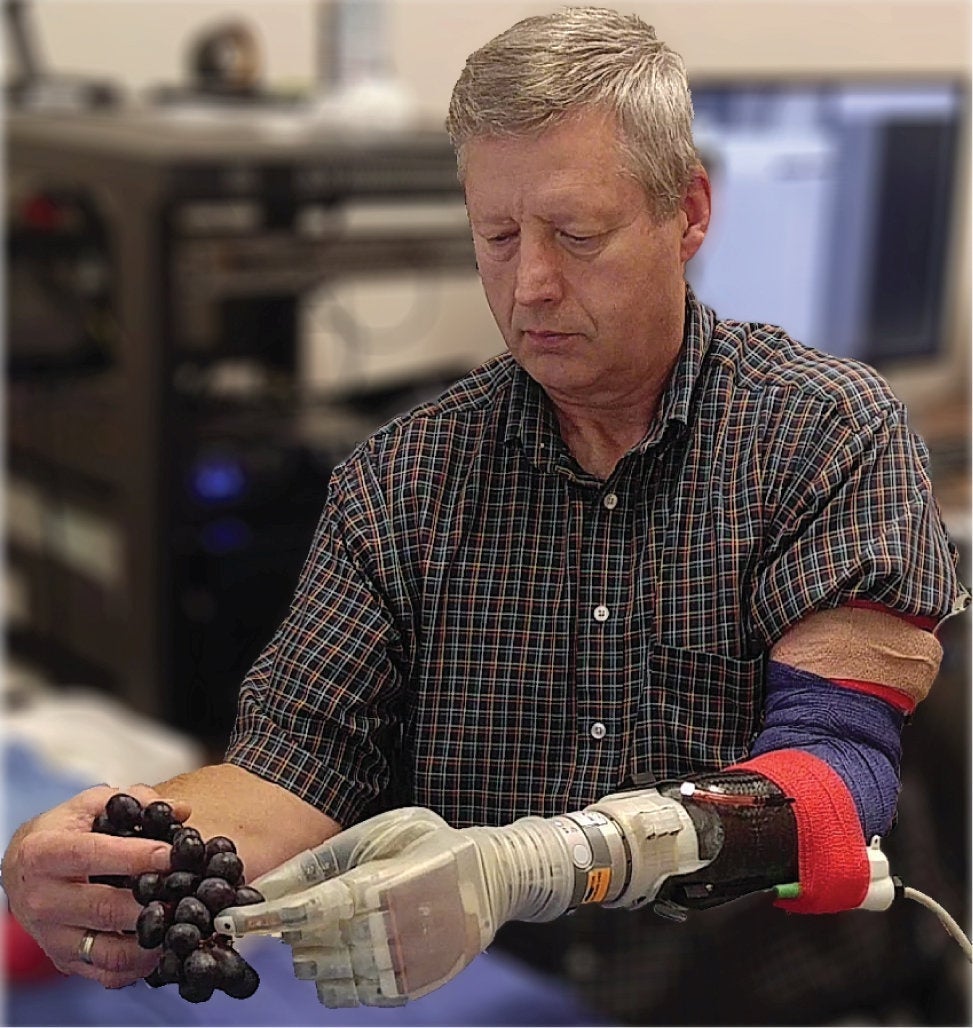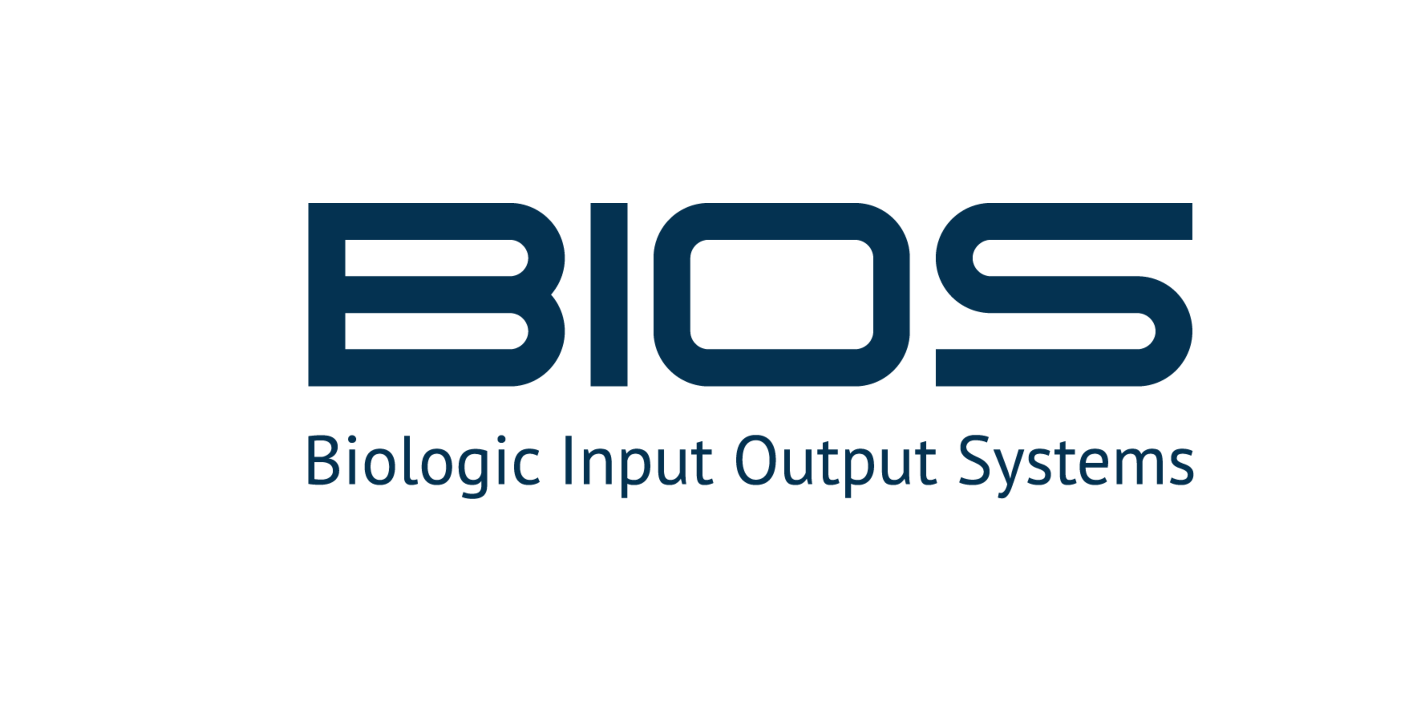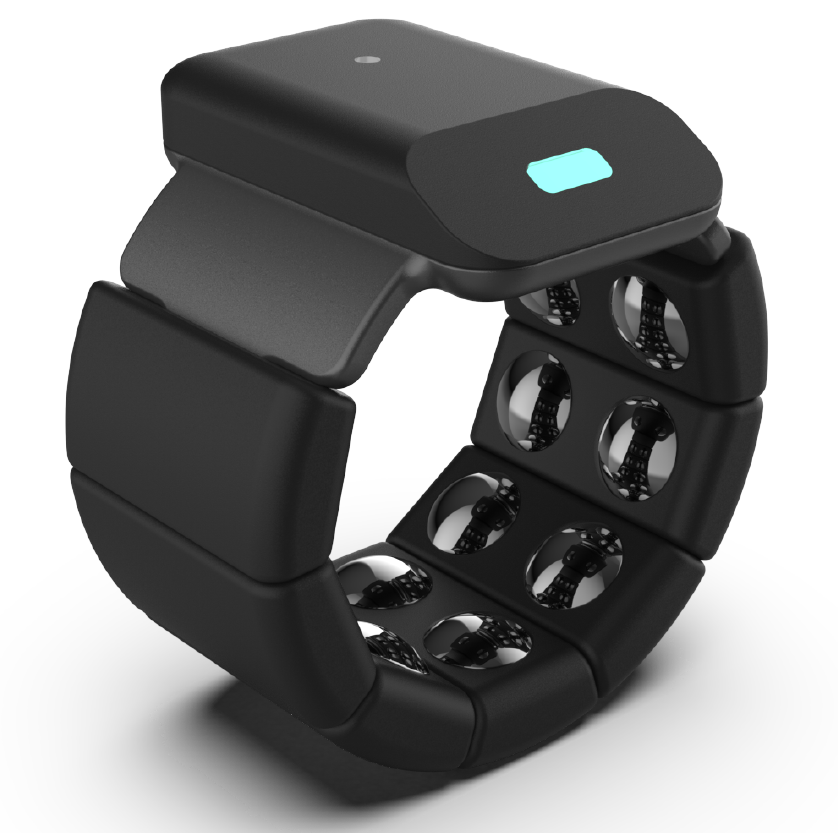The Utah NeuroRobotics Lab just received an additional $52,928 from Biologic Input Output Systems, Inc. to support the translational of the LUKE Arm Neuroprosthesis. This funding will support device testing and personnel to prepare for implanting a new amputee participant for a 1-year clinical trial. The next participant will take the LUKE Arm home and use it unsupervised in their day to day activities.
New Clinical Trial for Upper-Limb Exoskeleton
New Digital Health Initiative Grant
New Collaborative NSF Grant
New Funding for “LUKE Arm” Neuroprosthesis
Lab Spinoff Raises $350K
New Tech Transfer Grant
Utah Neurorobotics Lab members win proposal grant at the RAC Grand Challenge
The Utah Neurorobotics Lab won a $100,000 grant from the Remote and Austere Conditions Grand Challenge, presented by the University of Utah’s Office of the Vice President for Research. The RAC Grand Challenge was created “as a pioneering initiative to stimulate and support innovative research focused on developing new techniques, technologies, and methods for remote and austere environments”, intending to “drive advancements and societal impact that address the unique challenges of these environments.”
Our proposal was titled “FrostByte: A Wearable Temperature Monitoring System for Frostbite Prevention and Research.” The project leverages a prototype wearable glove developed by our lab to monitor and prevent frostbite. The current device consists of a simple glove liner with a few thermocouples wired to a heating element to activate in case of extreme temperatures, but this simple device could have a big impact on clinical care. 1 in 10 people who live in cold climates get frostbite at some point in their life, and that number gets as high as 1 in 3 for those who recreate in the cold. 30% of frostbite cases result in amputation.
Under principal investigators Jacob George, PhD, and Scott McIntosh, MD, a team of MDs and PhDs were assisted by lab members Connor Olsen and Sophie Nelson. Congratulations team!
You can find more information on the RAC Grand Challenge here.
3 Pilot Grants Funded by Department of Physical Medicine and Rehabilitation
Our lab is proud to announce the funding of three new pilot grants authored by three of our Ph.D. students. Congratulations to Monika Buczak (Biomedical Engineering), Marshall Trout (Electrical Engineering), and Connor Olsen (Electrical Engineering). Each has been awarded ~$5,000 by the Department of Physical Medicine and Rehabilitation to help fund their research!
Monika’s Grant, entitled “Electronic Grip Gauge (EGG): Disentangling Sensory and Motor Deficits of Fine Hand Function,” will fund the development and translation of the EGG, an assessment tool to measure grip and dexterity. The EGG is currently used to assess the dexterity of prosthetic control in a research setting, and Monika hopes to translate the egg into the clinical sphere to assist with the rehabilitation of individuals who have suffered strokes.
Marshall’s Grant, entitled “Assisting and Rehabilitating Hand Dexterity for Stroke Patients through Proximal Nerve Stimulation,” uses functional electrical stimulation to reanimate stroke patients’ paretic limbs to assist in rehabilitation. Marshall’s work will operate similarly to mirror therapy but by actually moving the patient’s paretic limb through electrical stimulation of the proximal nerve.
Connor’s Grant, entitled “Enhancing Patient Independence with Hand Gesture Control of Inpatient Smart Rooms,” will fund the development of an EMG controller that will allow individuals to control their smart home environment using hand gestures. Connor seeks to enable the patients at the Nielsen Rehabilitation Hospital to use this control method in their hospital rooms to increase independence and promote recovery.
Connor Olsen Awarded Grant to Enhance Research Mentorship
Connor Olsen has been awarded the Enhancing Research Mentorship Grant from the Office of Undergraduate Research at the University of Utah. This is the first (pilot) year this grant has been awarded and aims to improve the mentorship experience between mentees and mentors in a research setting and improve the diversity among researchers.
Connor’s grant, titled “Skill-Focused Research Training Session for New Undergraduate Researchers,” seeks to improve the process of bringing undergraduates into the research sphere by focusing less on what tasks they can perform and instead on developing critical research skills, such as performing literary analyses, developing research questions, and analyzing experimental data. He hopes to use this grant to promote change away from undergraduates being assigned menial tasks in a research lab and build them into future researchers who can act independently and think critically.











